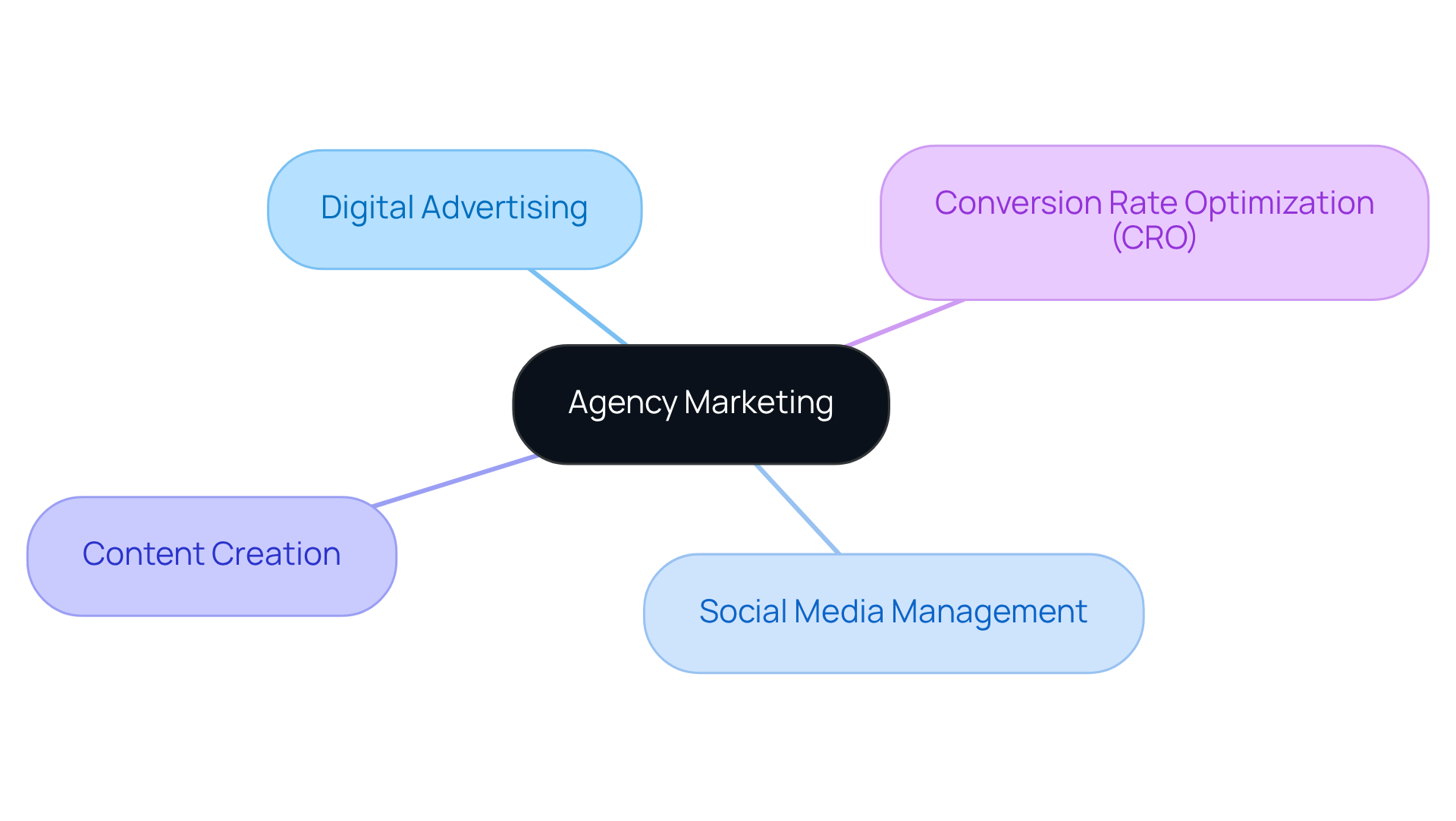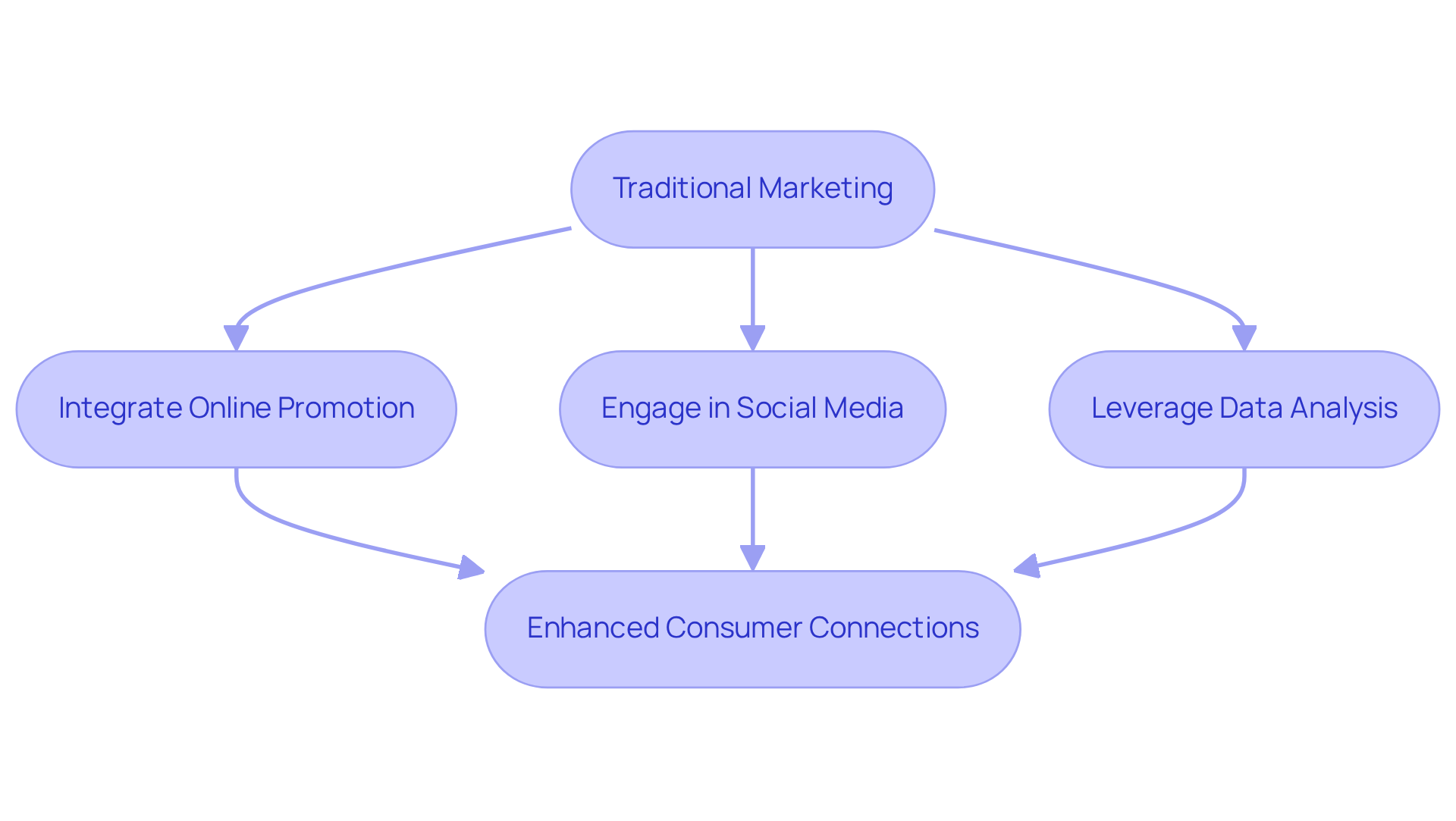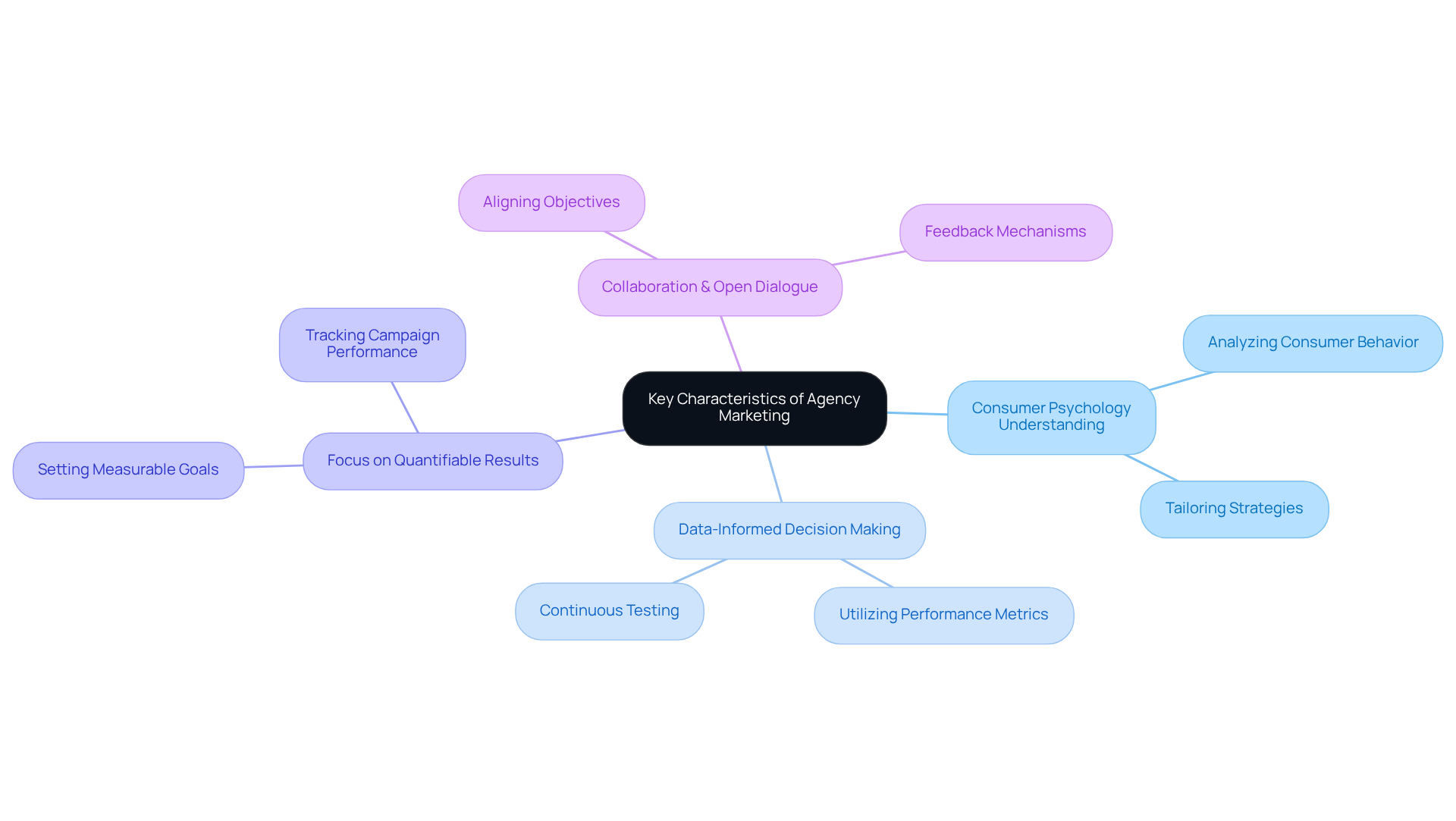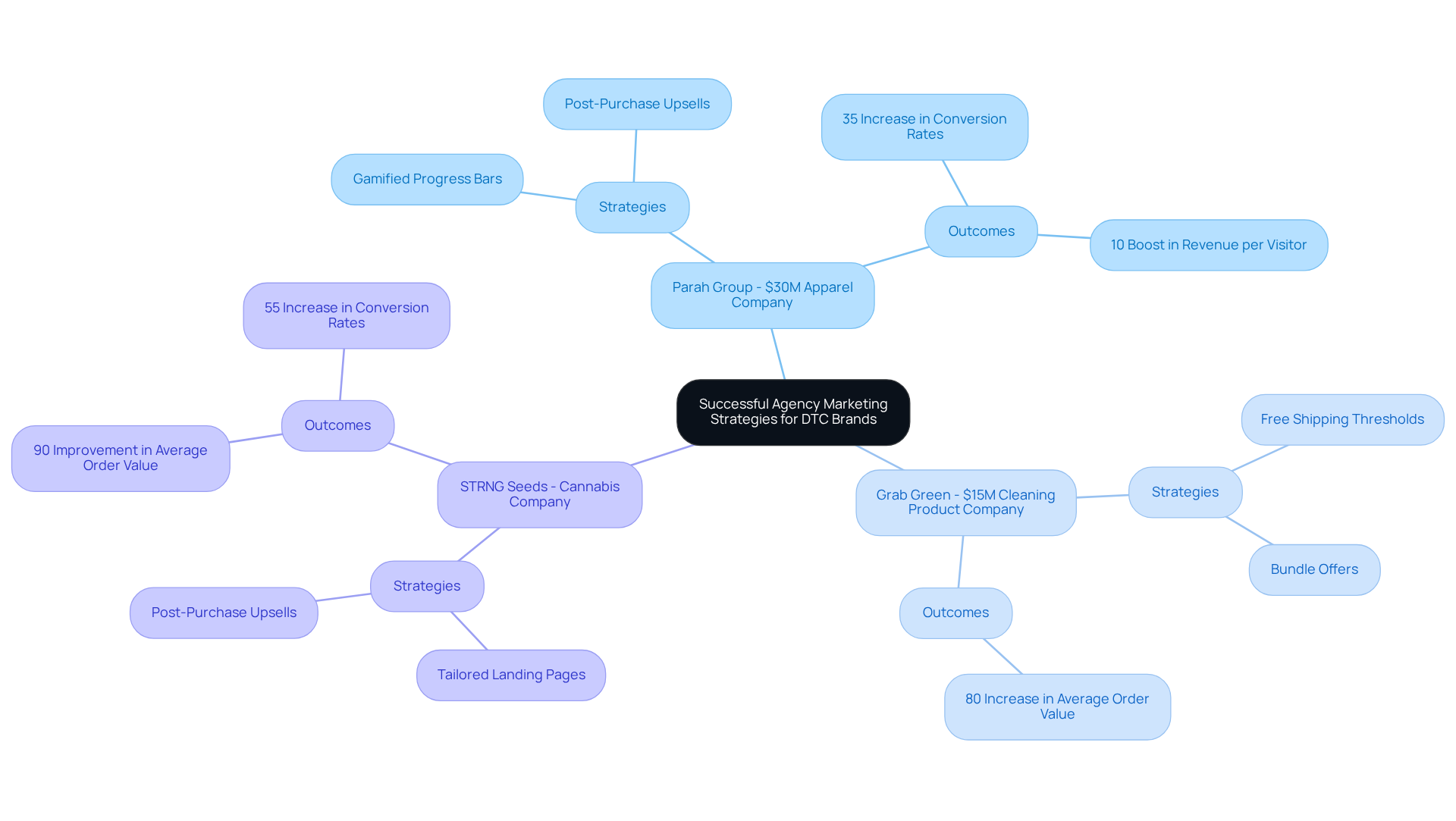
Overview
Agency marketing represents a strategic approach that empowers direct-to-consumer (DTC) brands to significantly enhance their visibility and engagement through specialized services, including digital advertising and content creation. This article underscores this concept by showcasing successful case studies where DTC companies have realized substantial growth in conversion rates and average order value through targeted agency collaborations. Such examples vividly demonstrate the effectiveness of leveraging expert resources in a competitive market. By adopting a focused agency marketing strategy, DTC brands can not only elevate their market presence but also drive measurable results that resonate with their business objectives.
Introduction
Agency marketing is revolutionizing the way direct-to-consumer (DTC) brands connect with their audiences, offering a strategic advantage in an increasingly competitive landscape. By leveraging specialized knowledge and advanced digital tools, these brands can significantly enhance their visibility and drive conversions with precision.
Yet, as the digital landscape continues to evolve, DTC companies must ask: how can they ensure that their marketing strategies remain both relevant and impactful?
This article explores the fundamental principles of agency marketing, its critical importance for DTC brands, and the essential characteristics that foster successful collaborations.
Ultimately, it reveals the immense potential for remarkable growth through strategic partnerships.
Defining Agency Marketing: Core Concepts and Importance
Agency marketing represents a strategic approach that leverages specialized firms to amplify a product's visibility, engagement, and . This method is particularly crucial for direct-to-consumer (DTC) companies, which encounter distinct challenges in effectively reaching their target audiences.
Agency marketing encompasses a variety of services, including:
- Digital advertising
- Social media management
- Content creation
- Conversion rate optimization (CRO)
The importance of agency marketing lies in its ability to harness expert knowledge and resources, allowing brands to focus on their core competencies while achieving measurable growth in a competitive landscape.

The Evolution of Agency Marketing in the Digital Landscape
The evolution of has been profoundly influenced by the advent of digital technologies and the internet. Initially, promotional firms focused predominantly on traditional media such as print and television. However, the rise of digital platforms has necessitated a significant shift in agency marketing strategy, compelling firms to:
- Integrate online promotion
- Engage in social media interactions
- Leverage data analysis
This transformation has empowered direct-to-consumer (DTC) companies to forge more effective connections with consumers through targeted campaigns and personalized messaging. Furthermore, the increasing emphasis on agency marketing has revolutionized organizational practices, enabling companies to refine their promotional efforts based on real-time consumer insights and behavioral patterns.

Key Characteristics of Agency Marketing for DTC Brand Success
Successful agency marketing for DTC companies is characterized by several key traits:
- A profound comprehension of consumer psychology
- Data-informed decision-making
- A focus on quantifiable results
Agencies involved in agency marketing must excel at analyzing consumer behavior to devise customized strategies that resonate with target audiences. Moreover, a commitment to is crucial in agency marketing, as it empowers companies to refine their strategies based on performance metrics.
Collaboration and open dialogue between the organization and the agency marketing are also vital, ensuring that promotional efforts align with the company’s overarching objectives and principles. Collectively, these traits enhance the effectiveness of agency marketing initiatives, driving growth for direct-to-consumer companies.

Case Studies: Successful Agency Marketing Strategies for DTC Brands
DTC companies are increasingly leveraging agency marketing to drive remarkable growth. For example, a $30M apparel company collaborated with Parah Group to optimize its conversion rates through strategic enhancements, such as gamified progress bars and post-purchase upsells. This partnership resulted in a 35% increase in conversion rates and a 10% boost in revenue per visitor.
Likewise, Grab Green, a cleaning product company with $15M in revenue, adopted free shipping thresholds and bundle offers, achieving an impressive 80% increase in average order value (AOV).
Another compelling example is STRNG Seeds, a rapidly growing cannabis company, which experienced a 90% improvement in AOV and a 55% increase in conversion rates by implementing tailored landing pages and post-purchase upsells.
These case studies underscore the substantial growth potential for DTC brands through with Parah Group in agency marketing.

Conclusion
Agency marketing is an essential strategy for direct-to-consumer (DTC) brands, significantly enhancing visibility, engagement, and conversion rates through specialized services. By leveraging expert knowledge and resources, DTC companies can adeptly navigate the complexities of reaching their target audiences while concentrating on their core business functions. This strategic approach not only streamlines marketing efforts but also fosters measurable growth in an increasingly competitive market.
The article discussed key concepts such as:
- The evolution of agency marketing in the digital landscape
- Essential characteristics for success
- Compelling case studies
The transition from traditional marketing to a more integrated, data-driven approach has fundamentally transformed how DTC brands connect with consumers. Essential traits—including an understanding of consumer psychology, data-informed decision-making, and a commitment to continuous optimization—are crucial for effective agency marketing strategies. Case studies exemplifying successful collaborations illustrate the tangible benefits that can be achieved through these partnerships.
In light of these insights, it is evident that agency marketing is not merely a trend but a fundamental component for DTC brand success. As the digital landscape continues to evolve, the importance of adapting marketing strategies to meet consumer needs and preferences cannot be overstated. DTC brands are encouraged to explore strategic collaborations with agency partners to unlock their full potential and drive sustainable growth in a dynamic marketplace. Embracing these practices will not only enhance brand performance but also cultivate lasting connections with consumers.
Frequently Asked Questions
What is agency marketing?
Agency marketing is a strategic approach that utilizes specialized firms to enhance a product's visibility, engagement, and conversion rates.
Why is agency marketing important for direct-to-consumer (DTC) companies?
Agency marketing is crucial for DTC companies as they face unique challenges in effectively reaching their target audiences.
What services are included in agency marketing?
Agency marketing includes services such as digital advertising, social media management, content creation, and conversion rate optimization (CRO).
How does agency marketing benefit brands?
Agency marketing allows brands to leverage expert knowledge and resources, enabling them to focus on their core competencies while achieving measurable growth in a competitive landscape.
FAQs











